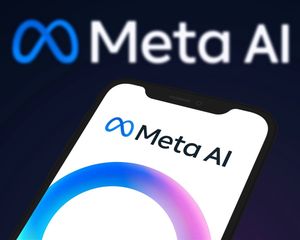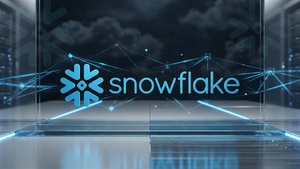Zapata Computing Earns Two New Patents for Post-Quantum Cybersecurity Threat Intelligence
Variational Quantum Factoring and Quantum-Assisted Defense Against Adversarial AI Algorithms Join More than 138 Patents and Patent Applications in Industry-Leading Portfolio
Zapata Computing, the leading enterprise quantum software company, today announced that the company has earned two new patents for post-quantum cybersecurity techniques. The new patents are for its Variational Quantum Factoring (VQF) and Quantum-Assisted Defense Against Adversarial AI (QDAI) algorithms.
With the addition of these patents, Zapata now owns one of the world’s largest quantum computing software patent portfolios. The company’s growing portfolio includes a diverse range of proprietary quantum algorithms, machine learning, optimization and hardware methods.
VQF and QDAI In the Age of Post-Quantum Cybersecurity Threat Intelligence
As the narrative regarding post-quantum cybersecurity continues to gain momentum across the security, intelligence and technology landscapes, VQF and QDAI underpin Zapata’s post-quantum cybersecurity threat intelligence solutions for its customers.
- VQF is a heuristic algorithm for cryptanalysis that can run on near-term quantum devices, quantum-inspired data structures, and other special purpose classical hardware. The hybrid quantum-classical algorithm was developed by Zapata’s technical experts and is a technique that demonstrates that an adversary can already start attempting to compromise existing encryption schemes using heuristic algorithms. A heuristic algorithm is designed to solve a problem faster than traditional methods by sacrificing accuracy or completeness for speed. This means that VQF is effective at identifying specific instances of the encryption vulnerability – helping enterprises shore up defenses in advance of an attack.
“VQF introduces a new category of decryption possibilities that could arrive a lot sooner than the market expects,” said Yudong Cao, CTO and co-founder of Zapata Computing. “We don’t need to wait for a fully fault-tolerant computer that can run Shor’s algorithm to see the threat. It’s not a sudden ‘one-day’ jump. VQF demonstrates that an adversary can try to compromise existing encryption schemes using heuristic algorithms that don’t have a mathematically provable guarantee they will compromise all instances. Using Shor’s algorithm, factoring a 2048-bit RSA number requires a quantum computer with millions of physical qubits running for hours. We estimate that VQF can factor a 2048-bit RSA number with approximately several thousand NISQ qubits in around the same amount of time.”
- QDAI is the first hybrid quantum-classical algorithm for defense against adversarial attacks. Machine learning (ML) classification models are prone to adversarial attacks. These attacks add a very small -- but carefully chosen -- variance to data that confuses the classifier, rendering results to be incorrect. Quantum computers provide a new method of attack against ML models that possess a uniquely quantum noise meant to confuse the model. QDAI trains ML models to be immune to these types of adversarial AI attacks.
“Quantum computers have a high potential to exploit potential vulnerabilities of neural networks,” added Cao. “As threats accumulate and adversarial AI models get stronger, we must leverage the power of quantum and classical resources to successfully defend against these attacks. That’s exactly the reason we developed QDAI. As quantum computers grow, we may be able to switch to a fully quantum classifier, but in the meantime, there is potential for significant gains with the quantum-classical hybrid approach like QDAI.”
“Zapata is consistently pushing the innovation envelope, developing new proprietary methods and technology that can benefit our customers and the ecosystem,” said Christopher Savoie, CEO of Zapata Computing. “These patents represent a growing focus and concern regarding the threat that quantum computers present to national security and global enterprises. We developed VQF and QDAI as proactive threat intelligence techniques in order to develop countermeasures so our enterprise and government customers can assess their systems and make them more robust against an attack. We anticipate that more vulnerabilities will emerge as quantum and AI technology mature, and we’ll continue to research and identify new threats down the road to try to stay a step ahead.”
For more information about Zapata Computing’s software, post-quantum cybersecurity offering, and VQF and QDAI algorithms please visit www.zapatacomputing.com
About Zapata Computing
Zapata Computing, Inc. is a leading enterprise quantum software company. The Company’s Orquestra® platform supports the research, development, and deployment of quantum-ready applications® for enterprises’ most computationally complex problems. Zapata has pioneered new methods in ML, optimization, and simulation to maximize value from near-term quantum devices, and works closely with ecosystem hardware providers such as Amazon, D-Wave, Google, NVIDIA, Quantinuum, IBM, IonQ and Rigetti. Zapata was founded in 2017 and is headquartered in Boston, Massachusetts. For more information, visit www.zapatacomputing.com.
View source version on businesswire.com: https://www.businesswire.com/news/home/20221206005428/en/
Contacts
Media:
Dan Brennan
ICR
dan.brennan@icrinc.com
More News
View More




Recent Quotes
View More
Quotes delayed at least 20 minutes.
By accessing this page, you agree to the Privacy Policy and Terms Of Service.